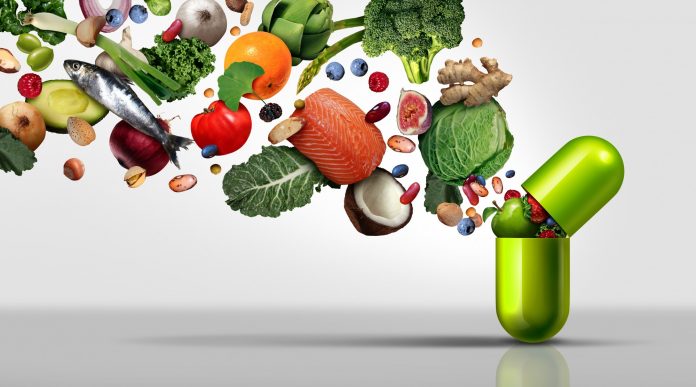A generally healthy lifestyle is the best basis for strengthening and supporting the immune system, according to the Centres for Disease Control and Prevention in the US.
A balanced diet of proteins, fibre, vitamin-rich whole foods and a rainbow of vegetables and fruit helps to ensure the body is functioning optimally. Supplements are necessary only where someone is not consuming a diet rich in certain necessary minerals or other nutrients (for example, vegans are often B12 deficient). A pharmacist can advise around which supplements are recommended, depending on diet and lifestyle factors.
“Zinc, vitamin C and vitamin D have the most evidence for increasing the number and activity of the immune cells, resulting in reduced severity and duration of symptoms,” said Diana Boot, pharmacist and nutritionist at Natural Chemist.
“There are formulations available for adults and children. Many of the formulas also contain herbal medicines to support immunity, such as elderberry, echinacea and mushrooms. I tend to recommend the products containing elderberry for children, as it has a sweeter taste, whereas the echinacea is bitter and the mushrooms taste a bit like dirt, so most kids are reluctant to take them.”
People who don’t get quality sleep or enough sleep are at greater risk of illness after being exposed to a virus, such as a common cold. Lack of sleep can also affect how speedily someone recovers if they do get sick.
The immune system releases proteins, or cytokines, during sleep. Certain cytokines are required to increase for warding off an infection or inflammation, or when someone is under stress. Sleep deprivation may decrease the production of these cytokines and infection-fighting antibodies and cells. Typically, sleeping for seven to nine hours is adequate for adults.
Risks and vulnerabilities
Known risk factors for immune system vulnerability to disease and infection include:
- Smoking.
- Obesity.
- Undernutrition and eating disorders.
- A diet high in fat, cholesterol and sugar.
- Lack of sleep and insomnia.
- Alcohol consumption beyond a limited or moderate amount.
- Ageing.
- Pregnancy and lactation.
Role of pharmacists
Pharmacists can provide general health and lifestyle advice regarding a healthy diet, physical exercise, sleep and supplements. They can also refer those patients struggling to self-manage risk factors to GPs, specialists or support groups – for example, those who admit to alcohol or drug abuse, insomnia sufferers, and people seeking help to battle an eating disorder.
“Most cough and cold medications contain pseudoephedrine, which is very effective for clearing sinus and nasal congestion,” Ms Boot said.
“The pseudoephedrine-containing products are Schedule 3, as a pharmacist needs to be consulted to ensure that there are no contraindications or interactions. These products treat the symptoms only, so I would usually ask the patient if they’d like to take something to help to shorten the duration of the cold as well.
“In terms of natural medicines for symptom management, liquorice can help to reduce airway inflammation and excessive production of mucous. I also often recommend ivy leaf extract for its effect on opening airways and reducing lung congestion. Again, check with the pharmacist as there are interactions that need to be considered.”
Pharmacists can also advise about sleep hygiene and recommendations for supplements that may support good sleep, or direct people to seek support from their GP or a specialist sleep clinic.
“I would refer someone to their doctor if the symptoms of a cold haven’t resolved after two to three weeks, or if there’s any breathing difficulty, fevers for more than three days, bloody mucous, chest pain or ear pain,” Ms Boot said. “I’m more likely to refer the very old or the very young.”
References
US Centres for Disease Control and Infection, Division of Nutrition, Physical Activity and Obesity. ‘Six tips to enhance immunity’. cdc.gov/nccdphp/dnpao/features/enhance-immunity/index.html
Alwarawrah Y, Kiernan K, MacIver NJ. ‘Changes in nutritional status impact immune cell metabolism and function’. Front lmmunol, 2018; May 16 (9): 1055. PubMed (nih.gov). pubmed.ncbi.nlm.nih.gov/29868016/
Mayo Clinic. ‘Lack of sleep: Can it make you sick?’ mayoclinic.org/diseases-conditions/insomnia/expert-answers/lack-of-sleep/faq-20057757
Da Silveira et al. ‘Physical exercise as a tool to help the immune system against COVID-19: an integrative review of the current literature’ Clin Exp Med, 2021; 21 (1): 15-28. link.springer.com/article/10.1007/s10238-020-00650-3
This feature was originally published in the May issue of Retail Pharmacy magazine.




